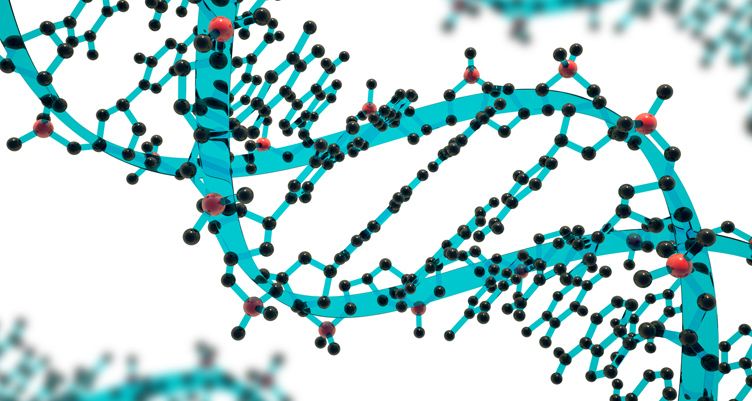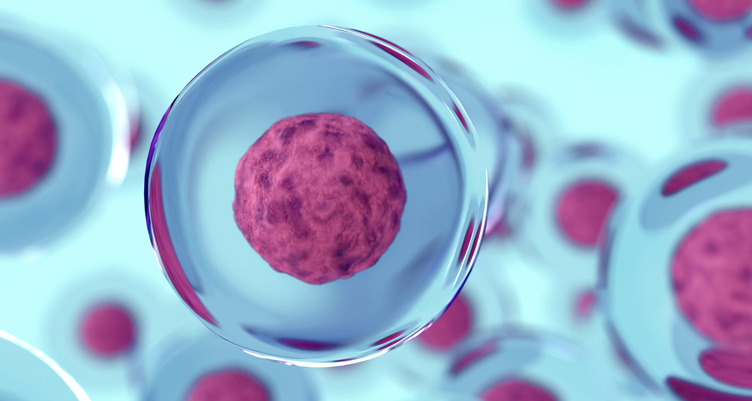Histone Acetylation: The Other Superpower of Ketosis

- Chances are, you’ve heard about the incredible benefits of being in ketosis, like increased energy, effortless fat burning, reduced inflammation, and laser focus.
- There’s another major draw to ketosis that doesn’t get much buzz — histone acetylation.
- Researchers found that the primary ketone that your body produces when you’re in deep ketosis helps turn on genes that were supposed to turn on, but may have been suppressed by mistake.
- Keep reading to dig deep into how histone acetylation works, why you want to keep your gene expression in good working order, and how ketosis can help.
When I first went into nutritional ketosis by restricting carbs, I felt like a new person. Actually, I felt like garbage for a few days, then I felt like a new person. There’s a good chance you’ve heard people rave about the benefits of ketosis — increased energy, effortless fat burning, reduced inflammation, and laser focus.
There’s another major draw to ketosis that doesn’t get much buzz — histone acetylation. Researchers found that the primary ketone that your body produces when you’re in deep ketosis helps turn on genes that were supposed to turn on, but may have been suppressed by mistake.[1]
That’s a breakthrough discovery that has enormous implications for various disease processes, learning and memory,[2] aging,[3] Alzheimer’s disease,[4] and even cancer.[5] Keep reading to dig deep into how histone acetylation works, and how ketosis can help you keep your gene expression in good working order.
Ready to experience the amazing benefits of ketosis? Find keto recipes here!
How genes turn on and off
 Almost all of your body’s cells have the exact same DNA, even though different types of cells do different things. In a brain cell, the genes involved with brain functions turn on, and other ones turn off.
Almost all of your body’s cells have the exact same DNA, even though different types of cells do different things. In a brain cell, the genes involved with brain functions turn on, and other ones turn off.
Sometimes, which genes are turned on and off are based on circumstances. For example, when your body senses alcohol, your liver cells turn on the gene to make the enzyme that breaks down alcohol. You don’t need that gene to be on all the time, and you don’t want it to stay off all the way through happy hour.
For a gene to turn on, you need two things. First, you need transcription, which copies a snippet of DNA — the instructions. Then you need translation, which tells your cells what to do.
For DNA snippet to make a copy, first the tightly packed DNA and proteins have to loosen. When DNA and proteins are tightly packed together, transcription chemicals cannot get to DNA to get transcription going.[6]
Histones are a type of protein that DNA wraps around. Whether these proteins are in a dense, compact state or a loose, accessible state depends on a number of conditions within the cell, one of which is acetylation — or, how many acetyl groups are attached.
Histone acetyltransferase is an enzyme that allows transcription to happen — it’s the gene transcription “on” switch. Think of acetyltransferase as the electrician that installs outlets for the plugs that power genes.
Histone deacetylase is the “off” switch. Think of histone deacetylase as the guy who comes around and plasters over the outlets that the electrician just installed, leaving fewer power sites available for gene expression.
You don’t want every gene you have to express all of the time, and you don’t want all of your genes to be suppressed all of the time. So, having both “on” and “off” enzymes puts a checks-and-balances system in place. Disease processes activate when histone deacetylase goes haywire and starts turning off too many genes. Your cells’ defenses depend heavily on genetics, so your body’s natural immunity systems shut down when there’s too much histone deacetylase.[7][8]
Related: Keto Diet for Beginners — Your Complete Guide
Ketosis pumps out deacetylase inhibitors

When you’re in ketosis, your body makes three types of ketones: acetylacetate (AcAc), beta-hydroxybutyrate (BHB), and acetone. Your first few days in ketosis, you make more AcAc than the others. After you get over the hump and you’re consistently producing ketones, you start producing more BHB, which makes people feel like superheroes.
There’s another superpower of ketosis that goes beyond laser-focused, zero craving days. Researchers found that BHB acts as a histone deacetylase inhibitor.[9] That means, it can help activate the genes that need to turn on, including the search-and-destroy genes that defend against cancerous cells.
Related: The MTHFR Gene Mutation and How to Rewire Your Genetics
Deacetylase inhibitors as a defense against cancer
 One way your body prevents tumors is by sensing damaged cells and destroying them before they multiply in damaged form. Your gene “on” switches have to be working well for the search-and-destroy mechanism to work.[10] Scientists have been investigating using deacetylase inhibitors to prevent the suppression of genes that you want to activate.[11]
One way your body prevents tumors is by sensing damaged cells and destroying them before they multiply in damaged form. Your gene “on” switches have to be working well for the search-and-destroy mechanism to work.[10] Scientists have been investigating using deacetylase inhibitors to prevent the suppression of genes that you want to activate.[11]
If you’re not expressing the gene for apoptosis, or the death and regeneration of damaged and malfunctioning cells, they will copy themselves, damage and all, over and over again. That’s when you get tumors.
Histone acetylation and Alzheimer’s disease
 Science has established that suppressed genes play a major role in Alzheimer’s disease,[12] and researchers are investigating histone deacetylase inhibitors as a target for Alzheimer’s treatments. So far, animal experiments are showing promise. Deacetylase inhibitors effectively reversed memory problems[13][14] and cognitive decline[15] in mice.
Science has established that suppressed genes play a major role in Alzheimer’s disease,[12] and researchers are investigating histone deacetylase inhibitors as a target for Alzheimer’s treatments. So far, animal experiments are showing promise. Deacetylase inhibitors effectively reversed memory problems[13][14] and cognitive decline[15] in mice.
In ketosis, your body makes its own deacetylase inhibitor, BHB. Pair that with the fact that your brain loves running on ketones for fuel, and you have a one-two punch for a strong brain.
If you’re ready to start ketosis, head on over to this article to find out what to do first. Even if you’re not particularly concerned about your genes right now, you’ll enjoy all the brain and body benefits of ketosis that you feel right away, and your genes will work better in the background.
Sign up for early access to sales, product launches, the latest Bulletproof news and more!



